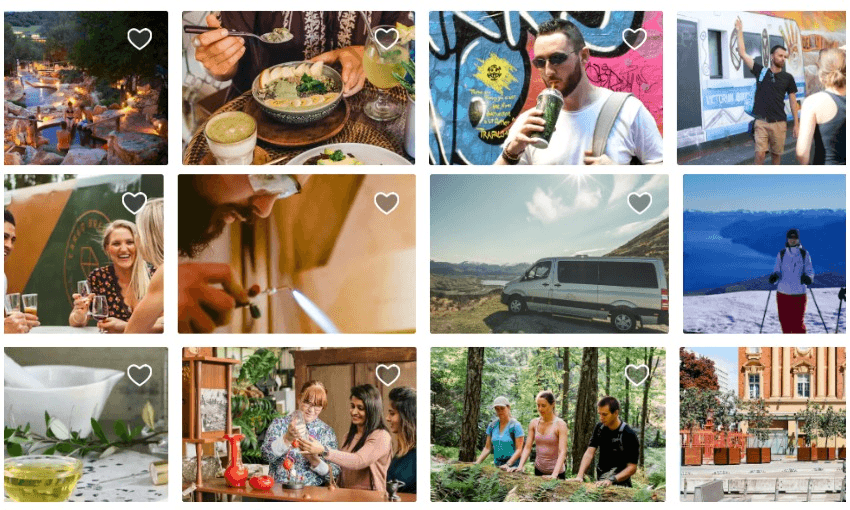This week, Airbnb announced the New Zealand-wide launch of its ‘experiences’ guided tours and the forthcoming Airbnb Plus. These extensions to the global brand’s business got Henry Oliver thinking about the future of travel and the places we call home.
Friends, I have seen the future. And, I must say, it’s a little underwhelming. Rather than new, societal-changing technologies, the future looks a lot like the present: gig economy services mediated by existing apps made by already dominant companies.
At least, that’s what I was told a couple of weeks ago in a packed Aotea Centre theatre with 1,500 or so designers, developers and technology-adjacent business types. We were there to attend a Semi-Permanent event boldly titled The Future of the Future, featuring designers and ‘thinkers’ at the most well-known technology companies in the world: Google, Facebook, Airbnb, Uber, Netflix.
From the outset, it was clear that we’d been oversold. Google is launching a job recruitment service (fine); Netflix is going to continue to annoy you with autoplay videos because you do, eventually, click on them (bummer); Uber is gonna Uber but increase the use of minivans and shared rides (take that public transport!) and flying cars (what could go wrong?); Facebook is getting AI to design clothes (hmm…). But it was Airbnb’s presentation that got me thinking.
Airbnb’s director of product design, Ethan Eismann – 30s, handsome, with a fresh-fade and a monochrome Acne Studios-esque wardrobe – talked about designing not for scale, but for love. Airbnb, he said, wasn’t designed for millions of people to use like a utility, it was designed for one person to love and then it was scaled up, so that millions of people, from all over the globe, would love it. That sounded all well and good. He used the word ‘love’ a lot, and who doesn’t like love? (If politics can be love, and tax can be love, can’t the gig economy be love too?)
Eismann said Airbnb’s goal was to allow the citizens of the world to “live like a local” wherever they went. Airbnb was against “commodified travel” and “inauthentic” travel experiences like staying in a hotel and, instead, wanted to show people “real” places, not the bland tourist traps you might be recommended in travel guides or recommendations apps.
To do this, Airbnb is expanding its offering of guided tours, what it calls “experiences”, which it officially launched in New Zealand on Friday. For the last year or so, you’ve been able to go to London and be introduced to the grime scene or go to Berlin and be guided around its notorious techno clubs. Now you can take a culinary tour of Cuba Street in Wellington, or explore the side streets of downtown Auckland.
Eismann showed us a beautifully produced video about a young gay man from South America who cannot safely come out at home. The man had travelled to San Francisco to, in part, explore a city with a vibrant gay culture, but when he turns up, he finds himself staying a grim hostel, visiting dull tourist spots, feeling out of place. San Francisco isn’t the city he’d hoped it’d be. Then he’s surprised with an invitation from Airbnb to take a guided tour and stay with three hosts, all of whom introduce him to different parts of gay life in the city.
Putting aside the issues of what Airbnb has done to the housing market in San Francisco – including raising housing prices and incentivising illegal evictions – the video is touching. It’s true that when you travel, it can be hard to meet locals and experience their home in the same way they do. And you can’t help but have compassion for a man who is marginalised at home, gaining access to a community he might not otherwise find a way into (saying that, Airbnb has had many of its own problems with discrimination on its platform although it has, to be fair, worked hard to enforce its nondiscrimination policy).
But, as Eismann talks about these “magical trips” and “hosted explorations” you also can’t help but notice how by commodifying the “real San Francisco”, Airbnb is actively participating in changing what San Francisco is. Some places are hard to find by necessity (especially places that cater to marginalised communities) or they are what they are because they’re hard to find. And when they’re easy to find, they are no longer the same.
In the video, as Edward Sharpe & The Magnetic Zeros’ ‘Home’ (the most used corporate tech video soundtrack in history) plays warmly in the background, the man says, “I felt like I was in my own bed. I felt like I was in my own home.” But is that what travel is? Feeling at home in a place that is not your home? Feeling at home everywhere? Is that the travel we want? Is that the world we want? Is that the future we want?
Eismann’s next view into Airbnb’s future is the exponential growth of Airbnb Plus, which, according to Sam McDonagh, Airbnb country manager for Australia and New Zealand, will soon be launched in New Zealand. Airbnb Plus is an extension of Airbnb’s core offering where homes are checked by Airbnb according to a 100+ point checklist (which includes testing the fluffiness of the pillows) and verified as “plus” so visitors can pay more to be more confident in their choice of accommodation. But, seeing this in action (again through super slick video) you start to see these homes merge into one: Scandinavian armchairs, colourful art, marble kitchen islands, indoor plants. Some had pools. All were perfect, according to the actors in the video, for watching Netflix or hosting a dinner party.
So, no longer will Airbnb be changing the “real” cities it wants travellers to experience by bringing tourists into residential neighbourhoods or by incentivising homeowners and leaseholders to rent out their homes by the night instead of, say, selling or renting them in a starved housing market. Airbnb will be changing actual homes with its third-party inspectors and checklists, furthering what an Airbnb creative director for environments design has called the “International Airbnb Style”.
Two years ago on The Verge, Kyle Chayka coined the term ‘AirSpace’ to describe the aesthetics, amenities and spaces – what he calls a “geography” – of our contemporary Silicon Valley-enabled gig economy globalisation:
It’s the realm of coffee shops, bars, startup offices, and co-live / work spaces that share the same hallmarks everywhere you go: a profusion of symbols of comfort and quality, at least to a certain connoisseurial mindset. Minimalist furniture. Craft beer and avocado toast. Reclaimed wood. Industrial lighting. Cortados. Fast internet.
And while the specifics have continued to shift – when the northern hemisphere was introduced to the flat white, it was partially at the cortado’s expense – the implication remains the same. When we travel, we expect to find the comforts we’re used to – the cool cafe that serves “good coffee”, plays “good music”, has shared tables filled with freelancers on MacBooks, and doesn’t mind if you’re there for hours even though you only buy two coffees and the cheapest egg-on-toast option. And we expect the same from our accommodation.
Wherever we go, we want to feel at home. We want the pillow to be just right and the wifi to be abundant. We want Netflix and a Bluetooth speaker. But we want to feel away from home too. We want to be in Tokyo or Brooklyn, but not too Tokyo or too Brooklyn. But it’s not that we want them to be like New Zealand. We don’t. Our houses are (mostly) drafty and mouldy. What we want, and what Airbnb is helping make possible, is for everywhere to be the same, or in Airbnb’s words, “a world where you can belong anywhere”.
At Friday’s Airbnb event, McDonagh showed us photos of his family on a bike tour in Tokyo. And it looked fun. Who wouldn’t want a local to show them around a difficult-to-grasp city like Tokyo? But when your family is cycling around with eight Australians, is it really living like a local or is a boutique tourist bus? He talked about a tour he took of “Hidden Auckland” – out of the way cafes, hidden tunnels in Albert Park, unmarked historic landmarks. But is Hidden Auckland still hidden if anyone can pay Airbnb to show it to you?
What happens when every experience of a place becomes something you can buy, or rent, or hire? Is there knowledge or experiences that have to be found or earnt to have value? What does it mean when access to the local is sold to you by a company with none or few employees in the place you’re visiting (McDonagh named one New Zealand Airbnb employee) and which funnels as much of its income as possible to Ireland to minimise its tax liabilities in the cities and countries it sells you access to?
Or is that an outdated way of thinking – an extension of localism into a reactionary parochialism? In the access-over-ownership, gig-economy future, is clinging to some pre-digital idea of authenticity, which requires an exclusion of those deemed “inauthentic,” a lost cause?
These cultural shifts may be the most radical technology-led changes of the near future. We seem to have reached some sort of hardware plateau – minute changes in computational speeds have become largely unnoticeable and wide access to powerful AI and next-generation robotics still seems a generation away.
In the last twenty-or-so years, consumer technologies have changed our lives immeasurably. The Discman turned into an mp3 player, which became an iPod and then an always-connected supercomputer that fits in your pocket. The internet went from a bunch of text to the place you shop, watch TV, talk with friends, send almost unlimited amounts of information around in the world in milliseconds. But such technological leaps have slowed and made way for an interactive future – small improvements took the place of radical change. An old vision of the future was teleportation – the ability to be anywhere in an instant. In our new future, we might not need to. We’ll already be everywhere. And nowhere.

